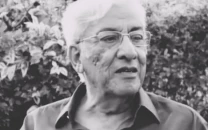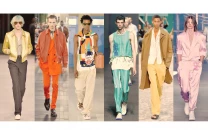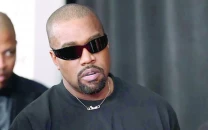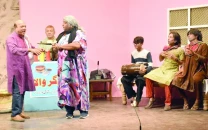Sada-e-Sufi echoes back to tradition
Hamza Akram Qawwal employs modern production techniques for first studio album

Sada-e-Sufi is the only album that comprises original qawwalis as compared to those released in the recent past. PHOTOS: PUBLICITY
Twenty-six generations is long enough time for a gharana to carve in stone its imprint. The legacy may be too illustrious to shoulder, but for Hamza Akram Qawwal, the qawwali of his ancestors is all but a guiding light for his own endeavours. Within a career that is still in its infancy, Hamza has established himself as the face of the new age of qawwali, whose livewire is the Millennial Generation itself. These days, he is giving finishing touches to an album that will rewrite history is several ways.
Produced by Hamza himself, Sada-e-Sufi is the first time a qawwal has experimented with modern recording and production techniques. It is not just Hamza’s first studio album, and second overall, but also the first record from a ‘Qawwal Bachon ka Gharana’ scion that has taken the liberty of moving on from traditional methods. “I have tried to keep the essence of the compositions and the poetry intact, while drumming the arrangement up,” he tells The Express Tribune.

In another first, Sada-e-Sufi is the only album that comprises original qawwalis as compared to those released in the recent past. Hamza rues the fact that qawwali has been confined to certain styles while the audiences have moved on in terms of both taste and preferences when it comes to styles and genres. “They no longer consume qawwali in its true form. Everyone wants fusion music these days,” he adds.
Read: Men of letters ‘Sufis transformed poetry’

The young qawwal intends to turn the tide with Sada-e-Sufi. “I have incorporated into it the standards of today without deviating from its traditional ethos.” In a time and age when releasing studio albums is not considered the best option for artists, Hamza is working on the 10-track Sada-e-Sufi day and night with his head held high. Ameer Khusrow’s Zihaal-e-Miskeen, Baba Bulleh Shah’s Tere Ishq Nachaya and Imam al-Buseri’s Qaseeda Burda Shareef are all part of the album, which is slated for a release next month.
Although shows such as Coke Studio have popularised devotional music among the masses, Hamza feels nothing can match the potency of qawwali. “The only form of music that adequately represents Sufism is qawwali.” The disrespect towards the art form is heartbreaking for him. “Qawwali is made part and parcel of every second award show, Bollywood film and music festival. Nobody really cares about the content. It’s just form for these people.”

Read: Google honours Nusrat Fateh Ali Khan on 67th birth anniversary
He cited this as the reason why his critically-acclaimed song Lover’s Eye never caught the eye of the masses. The qawwali-fusion experiment was chosen as BBC’s ‘Most Essential Song of the Week’ yet ignored locally. “They say that qawwals are not nominated for awards because they do not release new music on a regular basis. It actually works the other way around. It is the same lack of acknowledgment and appreciation that is stifling the art form and its practitioners.”
Published in The Express Tribune, October 17th, 2015.
Like Life & Style on Facebook, follow @ETLifeandStyle on Twitter for the latest in fashion, gossip and entertainment.


















COMMENTS
Comments are moderated and generally will be posted if they are on-topic and not abusive.
For more information, please see our Comments FAQ